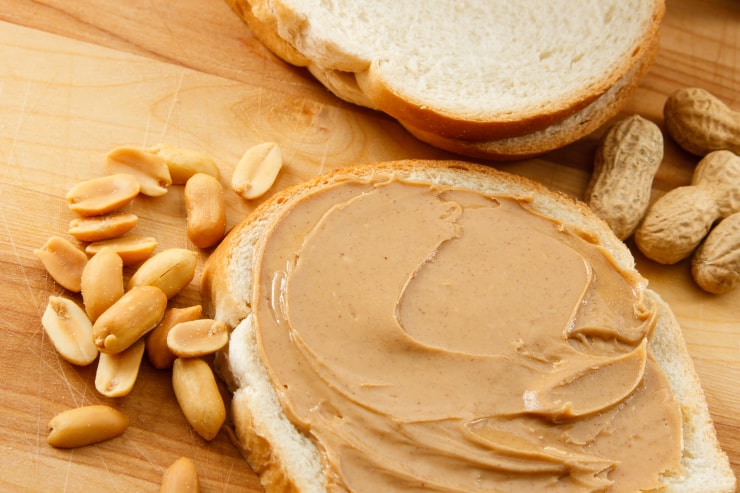
Feeding Peanuts To Babies? Study Says Yes!
Written by Katie Hintz-Zambrano
Photography by Photo Via Mom in Me MD
Over the last decade or so, peanuts have become the enemy. And with good reason: Peanut allergies in the U.S. have more than quadrupled in the past 13 years, and those little nuts are also our country’s leading cause of asphyxiation and death related to a food allergy. This growing trend led to the American Academy of Pediatrics issuing a 2000 recommendation to refrain from feeding peanuts to babies, and waiting until kids were 3. While that recommendation was rescinded in 2008 (citing insufficient evidence that it helped halt the development of peanut allergies), there’s still a lot of confusion about when you can feed the nut to your little ones.
Now a new landmark study from The New England Journal of Medicine suggests it might be wise to relax our feelings towards peanuts, at least when it comes to introducing the problematic food to our babies.
Inspired by a study that showed Jewish children in London who were not exposed to peanut products in their first year of life were 10 times as likely to develop an allergy than Jewish children in Israel who regularly consumed peanut-based foods as infants, researchers Rebecca S. Gruchalla, M.D., Ph.D. and Hugh A. Sampson, M.D. started a new study. This time they gathered 500 infants who were considered high risk for peanut allergy development and gave a group of them peanuts at regular intervals before and after their first birthdays, and had the other group avoid peanuts during the same time period. The children were then tested for a peanut allergy when they were 5-years-old. The result? Peanut allergies showed up in 17.2% of children who avoided the nut as a baby, compared with only 3.2% of the children who consumed peanuts before 11 months old.
So, bring on the PB & J? Not so fast, researchers say. They still need to do more studies to determine if the amount of peanuts they fed their subjects (approximately eight peanuts, three times a week, for 5 years) had an effect on the outcome, as well as other variables. In the meantime, the authors of the study suggest the following: “Any infant between 4 months and 8 months of age believed to be at risk for peanut allergy should undergo a skin-prick testing for peanut. If the test results are negative, the child should be started on a diet that includes 2g of peanut protein three times a week for at least 3 years, and if the results are positive but show mild sensitivity (i.e., the wheal measures 4mm or less), the child should undergo a food challenge in which peanut is administered and the child’s response and observed by a physician who has experience performing a food challenge. Children who are nonreactive should then be started on the peanut-containing diet.”
All in all, definite food for thought. For more info, you can read the complete study here.
Share this story




